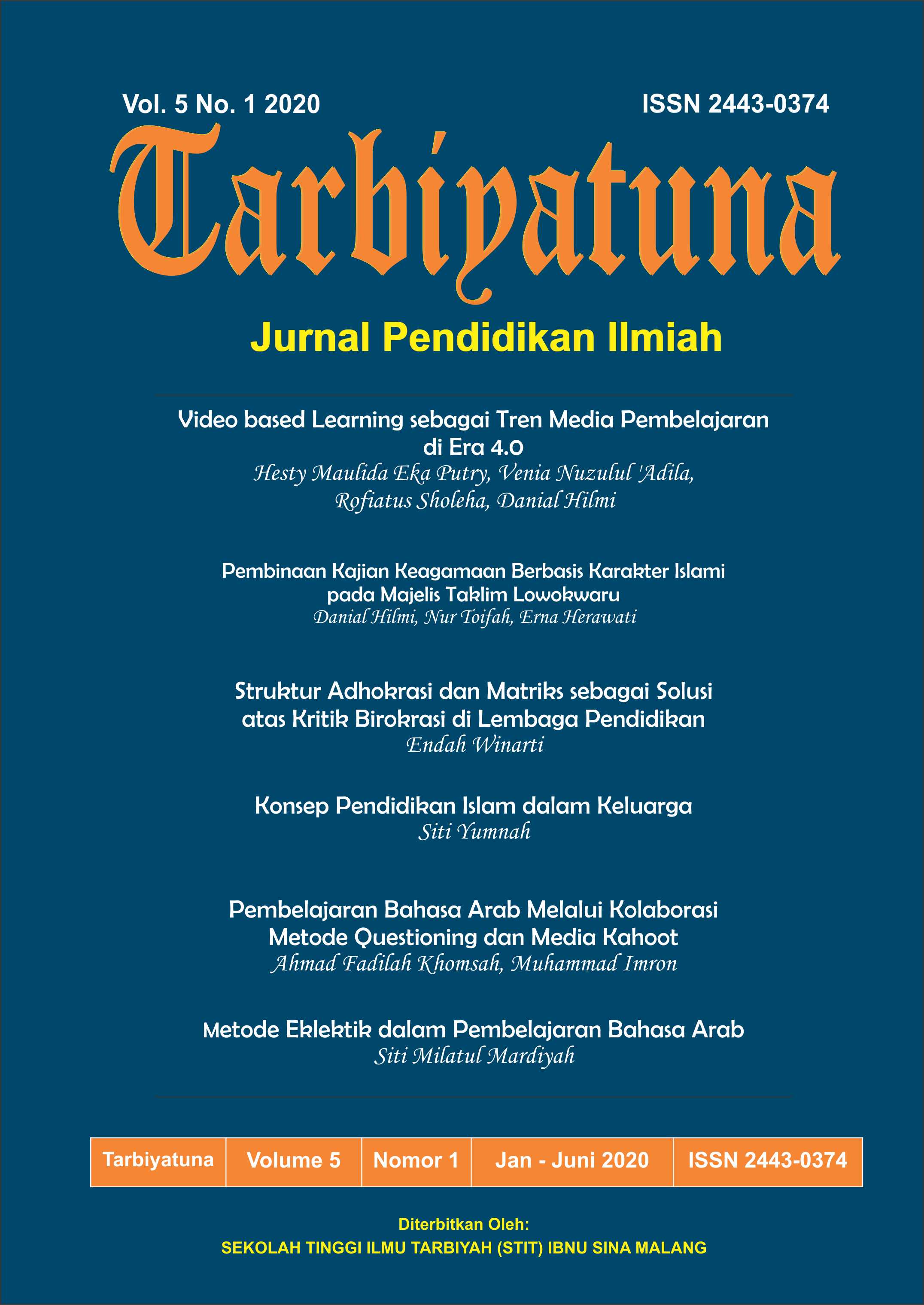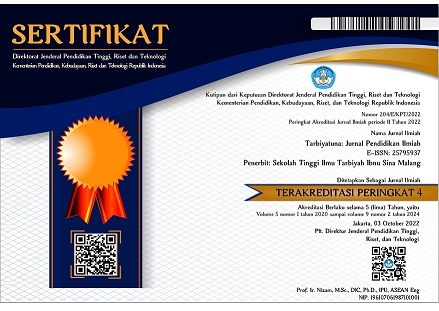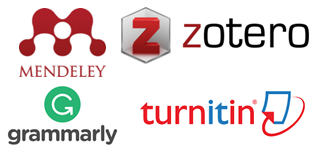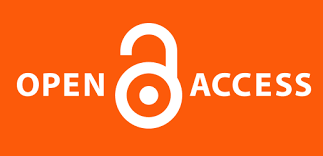Pembelajaran Bahasa Arab melalui Kolaborasi Metode Questioning dan Media Kahoot
Abstract
Learning that is conducive and fun in the industrial revolution 4.0 makes changes in learning styles in the learning process. Teachers are asked to follow an interactive digital learning process. Learning that is fun and not boring is one of the challenges for instructors and Developers of Learning Technology to innovate in learning. Questioning method (question and answer) is a method used by teachers in learning to arouse student motivation in expressing opinions in the learning process takes place. In Arabic there are four maharah that must be mastered. To master Arabic, learning media are needed that are effective, efficient and in accordance with the times so that students are interested and enthusiastic in participating in learning activities. However, many teachers are less creative in using existing media. Whereas learning media has a role as an attention drawer, curiosity and facilitates the delivery of information to students. This paper discusses the Collaboration of the Application of Questioning Methods with the Kahoot Application in Arabic Language Learning. Kahoot is one of the learning media in the form of web-based applications for making quizzes and simple games. Teachers as facilitators as well as content creators can add elements in the form of videos, images and texts and students can access them via a smartphone or personal computer.
References
Asuideria. (2018). Manfaat dan Kegunaan Kahoot. Diakses tanggal 19 Mei 2020. Pada http://asuiblo.blogspot.com
Charlina, & Septiyanti. (n.d.). Pemanfaatan Media Kahoot Sebagai Motivasi Belajar Mengikuti Kuis Wacana Bahasa Indonesia.
Djamarah, Syaiful Bahri dkk. (2006). Strategi Belajar Mengajar. Jakarta: Rineka Cipta.
Fitriani, L., Buchori, A., & Nursyahidah, F. (2019). Pengaruh Penggunaan Media Pembelajaran Kahoot Dengan Model Pembelajaran Computer Assisted Instruction (CAI) terhadap Hasil Belajar Siswa. Senatik, 292–300.
Irma Rasita, & Soedewo, tatie. (n.d.). Penggunaan Media Kahoot Dalam Pembelajaran Struktur Bahasa Inggris.
Irawati, M. (2018). Profil Minat dan Hasil Belajar Siswa Dalam Pembelajaran Matematika Kelas VII I SMP Negeri 5 Yogyakarta Dengan Menggunakan Media Pembelajaran Kahoot. Yogyakarta: Universitas Sanata Dharma.
Irwan, I., Luthfi, Z. F., & Waldi, A. (2019). Efektifitas Penggunaan Kahoot! Untuk meningkatkan hasil belajar siswa [Effectiveness of using Kahoot! To improve student learning outcomes]. Pedagogia: Jurnal Pendidikan, 8(1), 95–104.
Liubana, Alfred. (2019). Pengertian dan Manfaat Kahoot. Diakses tanggal 19 Mei 2020 pada https://alfredliubana40.wordpress.com
Muhajir, As’aril. (2004). Psikologi Belajar Bahasa Arab. Jakarta : PT. Bina Ilmu.
Nata, Abuddin, (2009). Perspektif Islam Tentang Startegi Pembelajaran. Jakarta : Kencana.
Ningrum, G. D. K. (2018). Studi Penerapan Media Kuis Interaktif Berbasis Game Edukasi Kahoot! Terhadap Hasil Belajar Mahasiswa. VOX Edukasia: Jurnal Ilmiah Ilmu Pendidikan, 9(1), 22–27.
Nugraha, H. (2018). Meningkatkan pemahaman Matematika Siswa SMP Negeri 1 Pagaden Kelas VIII dengan Gamification Kahoot. UJMES (Uninus Journal of Mathematics Education and Science), 3(1), 148–154.
Putri, Aprilia Royana dan Muhammad Alie Muzakki. (2019). Implementasi Kahoot sebagai Media Pembelajaran Berbasis Digital Game Based Learning dalam Menghadapi Era Revolusi Industri 4.0. Jakarta: Digital Edumedia Komputindo
Roestiyah, N.K, (1986). Didaktik Metodik. Jakarta : PT. Bina Aksara.
Rosyidi, Abdul Wahab dan Mamlu’atul Ni’mah. (2012). Memahami Konsep Dasar Pembelajaran Bahasa Arab. Malang : UIN Maliki Press.
Setiawan, H. desi, Sihkabuden, & Adi, E. Pramono. (n.d.). Pengaruh Kahoot Terhadap Hasil Belajar Siswa Kelas XI Di SMAN 1 Blitar.
Soetomo. (1993). Dasar-dasar Interaksi Belajar Mengajar. Surabaya : Usaha Nasional.








.png)
